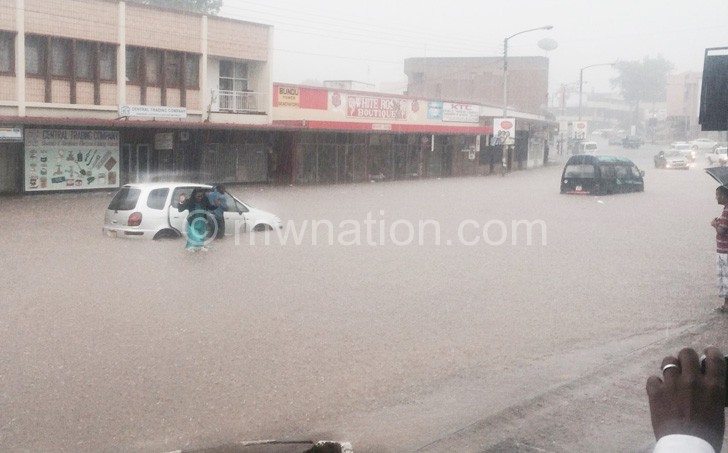Rains knock down electricity supply
Electricity Supply Corporation of Malawi (Escom) says debris resulting from heavy rains has reduced generation capacity at Nkula and Tedzani hydro-electric power stations and subsequently affected supply to consumers.
In a notice published yesterday, Escom management headed by chief executive officer Kamkwamba Kumwenda said heavy rains led to accumulation of trash at the two stations’ intakes and resulted in low output from the machines.
Reads the statement in part: “We are experiencing increased power supply deficit from 7:30am today, 23rd January 2023, due to adverse weather conditions which have affected our major power suppliers.

“Furthermore, cloudy weather has resulted in low solar power output. Consequently, customers will experience load shedding outside the published times in order to safeguard the system.”
But Escom was not clear on how much in terms of megawatts (MW) has been lost due to the heavy rainfall.
However, Electricity Generation Company of Malawi (Egenco) generates a combined 94MW at Tedzani I, II and III while Nkula A and B feed about 135.1MW into the national grid.
Besides the five plants, Egenco also generates 4.35MW at Wowve Mini Hydro in Karonga, making a total of 233.5mw available against a demand of about 618MW.
But since January last year when Tropical Storm Ana damaged Egenco’s Kapichira Hydro Power Station in Chikwawa, knocking off 130MW from the national grid, Malawians have endured long hours of loadshedding.
Egenco could not be reached for comment yesterday.
Malawi Confederation of Chambers of Commerce and Industry president Lekani Katandula is on record as having said businesses are spending about K260 million per day to run generators, translating to K7.8 billion monthly due to power rationing.
Meanwhile, the Department of Climate Change and Meteorological Services has warned of continued heavy rains.
In an update on Sunday, the department said Tropical Storm Cheneso currently building up in the Mozambican Channel is likely to re-intensify in the next 36 hours,





